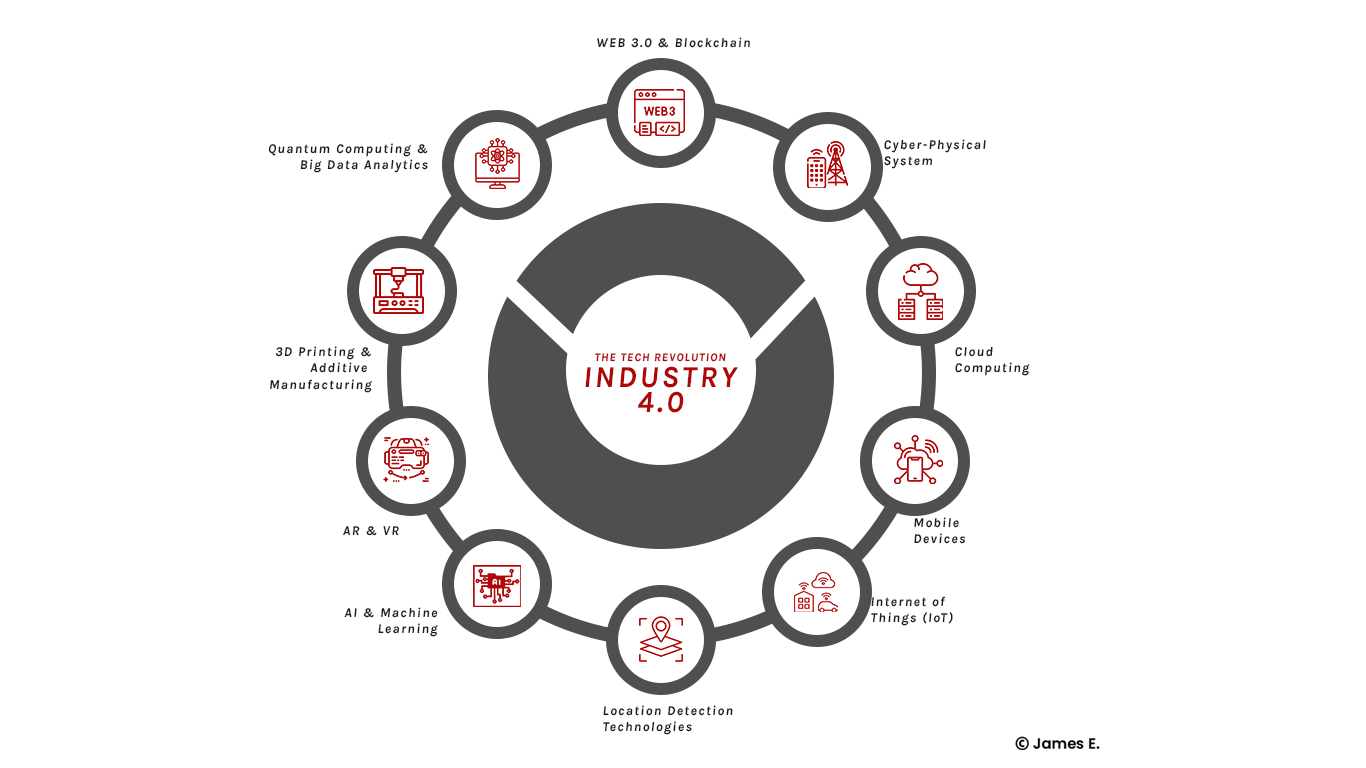
Tech! Let's pick up our discussion from where I stopped the last time. In the last article, you learned about the tech industry being the major point of emphasis for everyday growth and how it is the link that connects how we live, work, and network with our loved ones.
I concluded the last article by outlining what you stand to learn in this series of articles. Today, we will be looking extensively into choosing the right tech career.
In choosing the right career, it will interest you to know that tech roles can be broadly divided into five major aspects. These aspects are Development Roles, Design Roles, Data Science and Analytics Roles, Non-Tech Roles, and Specialised Roles (Other Tech Domains). You can pick a skill or more from any of these roles to learn. I talked about the skills available under each role expressly in this article.
Choosing the right tech career can be overwhelming, especially due to the numerous options and opportunities you see daily. As the industry evolves, the myriad of options available could be a major reason why you don't know which one to venture into. However, some factors can always help you choose the right tech career.
Standing at the top of the list of these factors is "interest." You won't be able to successfully learn what you don't find interesting, and even if you can learn, practicing might appear to be an issue for you.
Factors to Consider When Choosing a Tech Role
As indicated earlier, knowing all the tech roles is not enough to have a great career if you are not guided in choosing a path to follow in the industry. Below is a list of factors that can guide you in choosing a career path in tech:
Assess Your Interests
Your interests (in some cases passions) should always come first when thinking about a job in technology, as was previously indicated. Long-term success and higher satisfaction can be attained by pursuing a career that really fascinates you, despite the temptation to chase high-paying roles or industry trends.
Whether it be coding, data analysis, design, or project management, having a strong enthusiasm for a subject increases the likelihood of perseverance, mastery, and motivation. Think about what most excites you for a while. Do you get more satisfaction from using code to solve intricate puzzles or from analyzing massive datasets to draw conclusions? Maybe you're more drawn to the human-centered parts of technology, such as leading a development team or enhancing user experiences.
Identifying these interests will help guide you toward the right path. For example, if you enjoy coding and creating solutions, you might thrive as a software developer or an embedded systems engineer. On the other hand, if you're more inclined toward data analysis and critical thinking, a career in data science or business intelligence could be a perfect fit.
Ultimately, aligning your career with your genuine interests ensures you're not just working for the sake of it, but building a rewarding and sustainable career.
Evaluate Your Existing Skills And Background
To find the right career path in tech, start by evaluating your existing skills and background. Reflect on your past experiences in education and previous jobs, focusing on tasks you enjoyed and excelled at. This self-reflection will help you identify your strengths.
Consider both your technical skills, such as programming or data analysis and your soft skills, like communication and teamwork. It’s also important to understand your personality traits—whether you are more analytical, creative, or people-oriented.
For instance, if you excel at problem-solving and have a strong math background, you might thrive as a data scientist or software developer. Conversely, if you have experience in marketing and enjoy brainstorming new ideas, you could find fulfillment in roles like content creator or digital marketer.
By recognizing your strengths and preferences, you can narrow down your options and pursue career paths that align with your skills and interests.
Career Growth Opportunities
It's important to investigate the different growth opportunities in the market while thinking about a career in technology. Because of the quick development of technology and the widespread adoption of digital transformation in various industries, there is an increasing need for IT workers.
There are plenty of career opportunities and stability in roles like cybersecurity specialists, data analysts, and software engineers due to their high demand. You can select a career path that gives stability and job security by being aware of this desire.
Tech careers are frequently adaptable and varied, offering a range of chances for promotion. Several IT jobs offer obvious career paths, from entry-level work to management or specialized roles. A software developer, for instance, might begin as a junior developer and advance to a senior developer or technical lead position. They might even go on to work in project management or architecture. For those hoping to establish a long-term career in the industry, this clarity on career advancement may serve as a driving force.
The transferability of abilities is another important benefit of a career in technology. Numerous hard and soft talents, such as problem-solving, project management, and programming, are transferable to different businesses and other countries/environments.
This implies that your talents are transferable, which makes you a flexible candidate if you decide to change careers, relocate to a different country, or look into new tech-related employment. A healthcare data analyst, for example, could transition to a finance career by applying their analytical expertise and adjusting to a different industrial setting.
Compensation and Benefits
The fierce competition for talent in the tech sector is reflected in the high salary levels. According to current data, average pay varies depending on experience level and function. Software developers in the US, for example, typically make over $100,000 a year, whereas data scientists frequently make over $120,000. Typically, entry-level salaries begin at roughly $70,000, but as professionals progress in their careers, there is a large chance that these salaries will increase.
Furthermore, many tech jobs come with a host of benefits that go beyond competitive pay and improve job satisfaction. Common benefits include generous vacation plans, flexible work schedules, and remote work opportunities, all of which are becoming more and more valued by staff members.
Additional perks may be associated with particular roles. For instance, software engineers frequently benefit from profit-sharing plans and stock options, while product managers may receive bonuses based on success.
In addition, a lot of tech companies support professional development by offering training programs and stipends for further education. This dedication to professional development creates a positive work atmosphere and develops abilities that advance the success of the company. All things considered, the combination of competitive pay and a wide range of benefits makes a career in technology quite alluring.
Required Education and Certifications
Depending on the exact function, the tech industry's certification and education requirements can change dramatically. An undergraduate degree in computer science, information technology, or a similar discipline is usually required for many entry-level jobs, such as those of software developers or IT support experts. Nonetheless, certain positions can be open to applicants with appropriate experience or instruction from a coding boot camp, prioritizing hands-on learning over formal schooling.
Certifications can improve one's chances of landing a job and are essential for proving one's expertise. For example, CompTIA Security+, Certified Ethical Hacker (CEH), and Cisco Certified CyberOps Associate qualifications are frequently needed for cybersecurity positions. Similar to this, data analysts can gain from certifications that attest to their proficiency with data manipulation and analysis technologies, such as the Google Data Analytics Professional Certificate or the Microsoft Certified: Data Analyst Associate.
Certifications from cloud service providers like AWS Certified Solutions Architect or Microsoft Certified: Azure Solutions Architect Expert are highly valued for specialist roles like cloud architects or DevOps engineers. These certificates demonstrate a dedication to lifelong learning, which is essential in the ever-changing IT industry, in addition to skills in certain technologies.
Even though a degree is often the starting point for a career in technology, obtaining applicable certifications for particular professions can greatly increase a candidate's marketability and prospects for professional progression.
Technological Trends and Personal Preferences
To succeed in the tech sector, one must remain current with emerging trends, as these influence professionals' tool selection as well as the employment market. For example, programming languages such as Python and PHP provide alternative career possibilities if you have a preference for backend development.
PHP is still a popular choice for online development, particularly with systems like WordPress; however, Python is more versatile in fields other than web development, such as cybersecurity, data science, and artificial intelligence (AI). With the help of programs like TensorFlow and PyTorch, Python is becoming a more popular option for students wishing to pursue careers in these cutting-edge domains of machine learning.
Another developing field is cybersecurity, where there is a growing need for experts as more businesses prioritize protecting their digital assets. The emergence of DevOps approaches, which are facilitated by platforms such as Docker and Kubernetes, underscores the growing demand for professionals with the ability to expedite software deployment and operations.
It's important to think about how these trends fit with your particular tastes while selecting a tech job. For instance, you might concentrate on learning React or Vue.js if you like creating user interfaces.
Alternatively, a career in Python-based AI or machine learning may be more suited for you if you have a stronger enthusiasm for data analysis and algorithms. Pursuing cybersecurity could be the best option if you're interested in security and information protection. In a job market that is evolving quickly, you can successfully position yourself for success by aligning your interests and skill set with these expanding industries.
Conclusion
By considering all these factors and aligning your career choices with your interests and strengths, you will definitely find a fulfilling path in the tech industry that not only meets your professional aspirations but also contributes to your personal growth and makes you a problem solver.
Furthermore, the tech industry presents rich career opportunities with unique requirements and rewards. By understanding the various roles available, both tech and non-tech and assessing your interests and skills, you can make informed decisions about your career path. Therefore, take the time to explore your options, and don't forget that the right career choice will not only advance you but also enhance your overall happiness and satisfaction in the workplace and life.
A bonus for today: It is not a bad idea to switch roles. After a while, it's acceptable to change roles, but before doing so, be sure you've accumulated enough experience and the current role has helped you. A person who constantly switches roles will not have a successful tech career. More value awaits you in the next article!





